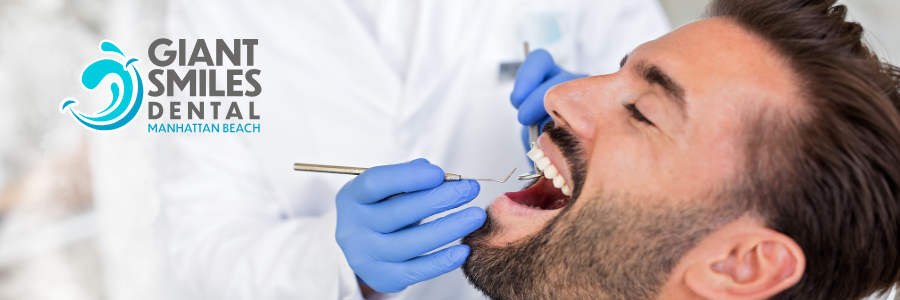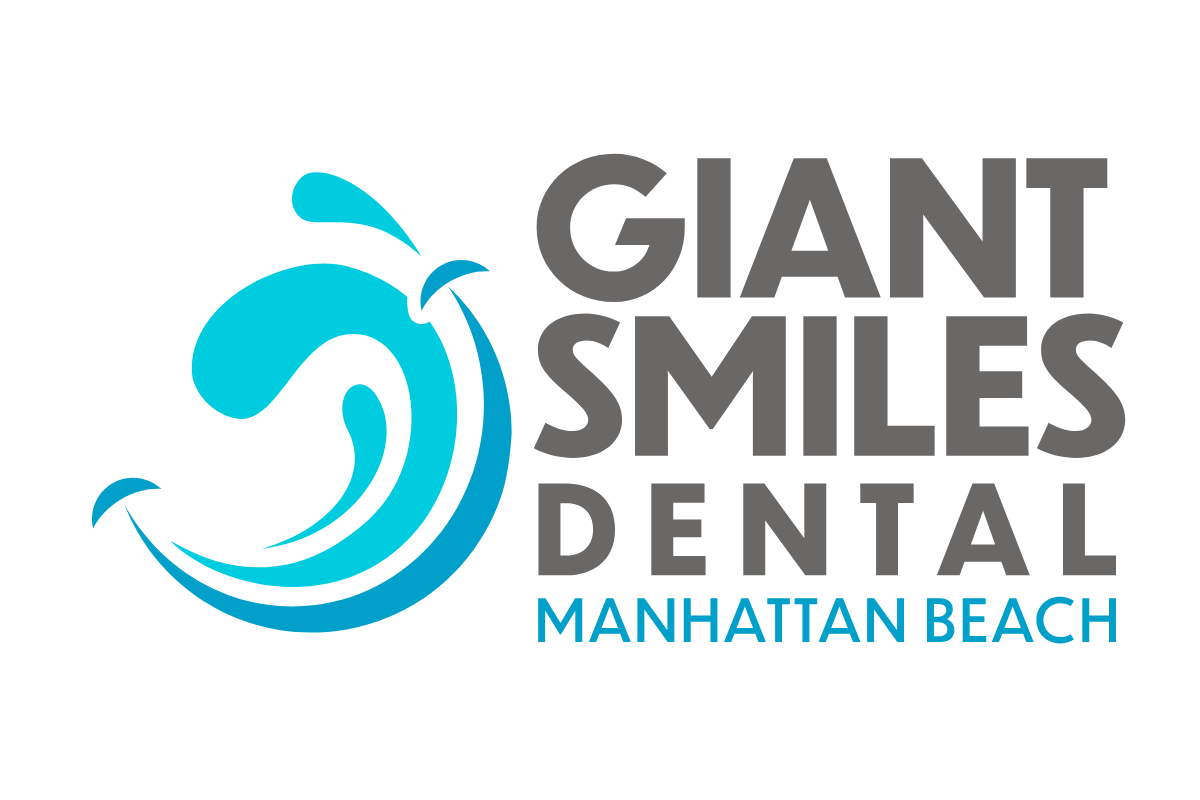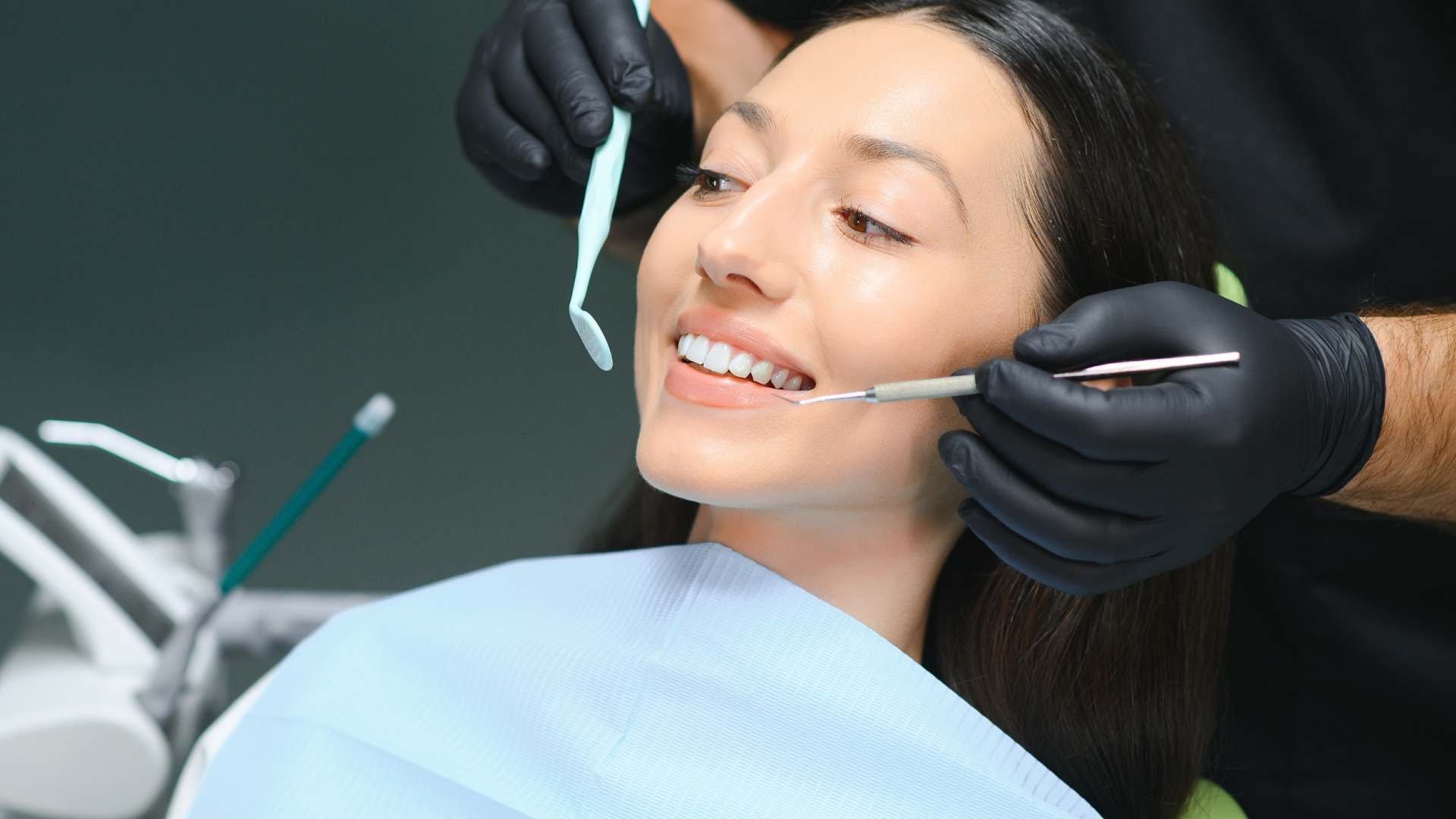Post-Dental Visit Tooth Pain: Understanding the Reasons

Understanding Post-Procedure Sensitivity
It's common to experience some tooth sensitivity after dental work. At Giant Smiles Dental, we minimize discomfort, but sometimes it's just part of the healing process. Let's break down some of the reasons your teeth might be a little touchy after a visit.
Temporary Inflammation After Dental Work
One of the main reasons for post-dental visit sensitivity is temporary inflammation. When we work on your teeth, the surrounding tissues can get a little irritated even with the gentlest touch. Think of it like bumping your elbow – it's not a significant injury, but it's noticeable for a bit. This inflammation can make your teeth more sensitive to temperature changes or pressure.
Here are a few things to keep in mind:
- The level of inflammation varies from person to person.
- It usually peaks within the first 24-48 hours.
- Over-the-counter pain relievers can help manage the discomfort.
Nerve Irritation From Restorative Procedures
Sometimes, restorative procedures like fillings or crowns can cause nerve irritation. When we clean out decay or prepare a tooth for a restoration, we're working pretty close to the nerve, which can lead to temporary sensitivity.
It's important to remember that this type of sensitivity is usually temporary. The nerve needs a little time to calm down after being disturbed. If the sensitivity persists or worsens, it's always a good idea to call us at Giant Smiles Dental.
Reversible Pulpitis: A Common Occurrence
Reversible pulpitis is a fancy term for inflammation of the pulp, which is the inner part of your tooth that contains the nerve and blood vessels. A deep filling or a recent dental procedure often causes it. The good news is that, as the name suggests, it's usually reversible.
Here's what you might experience:
- Sharp pain when exposed to cold or sweet stimuli.
- Pain that subsides quickly after the stimulus is removed.
- Tenderness when biting down.
If you're experiencing these symptoms, don't panic! Let us know, and we can help you manage the discomfort and monitor the situation.
Pain Following Deep Cleaning Procedures
Deep cleaning, also known as scaling and root planing, is a more intense cleaning that goes below the gumline to remove plaque and tartar. It's often needed when there's evidence of gum disease. While it's a great way to get your gums healthy again, it can sometimes lead to some discomfort afterward. Let's explore some of the reasons you might experience pain after this procedure, and what Giant Smiles Dental can do to help, especially if you're also considering teeth whitening in Manhattan Beach.
Gum Tissue Soreness After Scaling and Root Planing
After a deep cleaning, it's standard for your gums to feel sore. Think of it like this: your gums have just been thoroughly cleaned, and they might be a little irritated. This soreness is usually temporary and should subside within a few days. Here's what you can expect:
- Redness and swelling of the gums.
- Tenderness to the touch.
- Possible slight bleeding when brushing.
To help ease the discomfort, rinsing with warm salt water a few times a day can work wonders. Over-the-counter pain relievers can also help manage any pain. Just be sure to follow the directions on the label.
Exposed Root Surfaces and Temperature Sensitivity
One of the side effects of deep cleaning is that it can sometimes expose more of the tooth root surface. This happens because the gums pull away from the teeth when there's inflammation, and the cleaning removes the buildup covering the roots. This can lead to increased sensitivity to hot and cold.
- Sharp pain when eating or drinking something cold.
- Aching sensation after consuming hot foods or beverages.
- Sensitivity to cold air.
Using a toothpaste designed for sensitive teeth makes a difference. These toothpastes contain ingredients that help block the pain signals from the tooth to the nerve. It might take a few weeks to notice a significant change, so be patient.
Transient Discomfort From Periodontal Therapy
Periodontal therapy, including deep cleaning, aims to reduce inflammation and promote healing. However, the process itself can cause some temporary discomfort. This is because the gums and tissues are being manipulated and cleaned, which can irritate them.
- Throbbing pain in the gums.
- General discomfort in the mouth.
- Sensitivity when chewing.
Follow any aftercare instructions provided by Giant Smiles Dental. This might include using a special mouthwash or taking antibiotics to prevent infection. If the pain is severe or doesn't improve after a few days, call us.
Discomfort After Dental Fillings
Getting a filling is straightforward, but sometimes you may feel discomfort afterward. It's common, and Giant Smiles Dental wants you to know what to expect and when to be concerned.
Post-Operative Sensitivity to Pressure or Temperature
It's normal to have some sensitivity after a filling. This usually shows up when you bite or eat something hot or cold. The good news is that this kind of sensitivity is often temporary and fades away within a few days or weeks. If it hangs around longer, it's worth giving us a call.
High Spots on New Restorations Causing Occlusal Trauma
Sometimes, the new surface may be too high after a filling. This can mess with your bite and cause pain when you close your mouth. It's called occlusal trauma, and it's not fun. Here's what you might notice:
- Pain when biting down
- Jaw soreness
- Headaches
If you think your filling is too high, return to Giant Smiles Dental. We can adjust it quickly and easily.
Deep Cavity Proximity to the Pulp
If the cavity was deep, close to the nerve (pulp) of the tooth, you might have more sensitivity. This is because:
- The nerve is irritated during the filling process.
- The filling material can sometimes cause a reaction in the nerve.
- The tooth needs time to heal.
If the pain is intense or doesn't get better after a few weeks, it could mean the nerve is unhappy. Rarely, a root canal might be needed to fix the problem. Don't worry, we'll explore all options before making any decisions.
Soreness From Local Anesthesia and Injections
It's common to experience discomfort after receiving local anesthesia during a dental procedure. The effects of the injection and the anesthetic can lead to temporary soreness. At Giant Smiles Dental, we aim to make this process as gentle as possible, but some post-injection soreness is sometimes unavoidable. If you are looking for a "dentist in Manhattan Beach, CA ", we are here to help.
Muscle Soreness at the Injection Site
One of the most frequent complaints is muscle soreness around where the injection was given. This happens because the needle has to pass through muscle tissue to deliver the anesthetic. It's similar to how your arm might feel after a shot at the doctor's office. The soreness usually fades within a day or two. Apply a warm compress to the area to help relax the muscles and ease the discomfort.
Jaw Discomfort From Prolonged Mouth Opening
During a dental procedure, keeping your mouth open for an extended period can strain your jaw muscles. This is especially true for longer appointments. It's like holding any muscle in a fixed position for too long – it's bound to get tired and achy.
Here are a few things that can help:
- Gentle jaw exercises, such as slowly opening and closing your mouth.
- Apply a warm compress to your jaw muscles.
- Taking over-the-counter pain relievers if needed.
If you experience excessive jaw discomfort during the procedure, it's important to communicate with your dental team. We can often adjust our approach or give you short breaks to help alleviate the strain.
Bruising or Swelling Post-Injection
Occasionally, a small blood vessel might get nicked during the injection, leading to a bruise or swelling. This is usually nothing to worry about and will resolve within a week or so. The size and colour of the bruise can vary from person to person.
To help minimize bruising and swelling:
- Apply an ice pack to the area for the first 24 hours.
- Avoid taking blood-thinning medications like aspirin unless prescribed by your doctor.
- Gently massage the area after the first day to help break up pooled blood.

Referred Pain and Adjacent Tooth Discomfort
Sometimes, the pain you feel after dental work isn't exactly where the job was done. It can be confusing when you're feeling discomfort in a completely different area of your mouth than expected. Let's explore why this happens.
Pain Radiating From the Treated Area
Pain can travel. It's not uncommon for pain to radiate from the site of treatment to surrounding areas. Think of it like ripples in a pond; the initiala disturbance creates waves that spread outward. In your mouth, this means a procedure on one tooth might cause discomfort in the jaw, ear, or even the head. This is because the nerves in your mouth are interconnected, and pain signals can sometimes get mixed up. It's usually temporary, but it can be unsettling.
Adjacent Teeth Experiencing Sympathetic Sensitivity
Nearby teeth can also become sensitive after a dental procedure, even if they weren't directly involved. This is often referred to as sympathetic sensitivity. It's like when one person yawns, and everyone else starts yawning too. The nerves in adjacent teeth can become temporarily irritated or inflamed due to the proximity to the treated area. This sensitivity usually resolves on its own within a few days. Here are a few things that might help:
- Use a desensitizing toothpaste.
- Avoiding very hot or cold foods.
- Gentle brushing around the sensitive area.
Referred Pain From Temporomandibular Joint Strain
Sometimes, pain isn't even related to teeth. It could be referred to as pain in your temporomandibular joint (TMJ). This joint connects your jaw to your skull, and if it becomes strained or inflamed, it can cause pain that radiates to your teeth, head, or neck. Prolonged mouth opening during dental procedures can sometimes aggravate the TMJ, leading to referred pain. At Giant Smiles Dental, we always try to make you as comfortable as possible during procedures to minimize strain.
If you're experiencing pain that seems unrelated to the treated tooth, it's important to let us know. We can help determine the source of the pain and recommend appropriate treatment options. It might be as simple as taking an over-the-counter pain reliever or using a cold compress, but it's always best to get it checked out to rule out any underlying issues.
Identifying Underlying Dental Issues
Sometimes, that post-dental visit pain isn't just a normal reaction to the procedure itself. It can point to something else that we didn't catch before. The dental work stirred things up, making a hidden problem more obvious. At Giant Smiles Dental, we always consider this possibility when you're still hurting after you should be feeling better.
Pre-Existing Cracks or Fractures Unmasked
Sometimes, tiny cracks or fractures are already present in teeth, but they're so small that they don't cause any pain. Dental work, like a filling or crown prep, can put stress on the tooth, making the crack bigger or more sensitive. This can lead to pain that feels like it's from the new dental work, but it's actually from the pre-existing crack.
Undiagnosed Pulpitis Requiring Further Intervention
Pulpitis is when the pulp (the nerve inside your tooth) gets inflamed. Sometimes, it's mild and reversible, but other times, it's more serious. If you had a filling done on a tooth with some pulpitis, the filling might worsen the inflammation, leading to lingering pain. A root canal might be needed to calm things down in these cases.
Secondary Caries Development Under Old Restorations
Old fillings don't last forever. Over time, they can start to leak, allowing bacteria to sneak in and cause decay underneath. This is called secondary caries. If you get a new filling to replace an old one, and there's decay underneath, that decay can irritate the nerve and cause pain. Getting those old fillings checked regularly at Giant Smiles Dental is essential!
It's important to remember that post-operative pain can sometimes be a sign of a deeper issue. If your pain persists or worsens, don't hesitate to contact us. We're here to help you figure out what's happening and get you feeling better.
Wrapping Things Up
After a dental visit, it's normal to feel some tooth pain. It happens for many reasons, like the work itself or your tooth reacting to things. Most of the time, this pain goes away on its own. But if it sticks around or gets bad, you should call your dentist. They can figure out what's going on and help you feel better. Don't ignore it; sometimes a little pain can mean something bigger is happening. Your dentist is there to help, so don't hesitate to reach out if you're worried.






